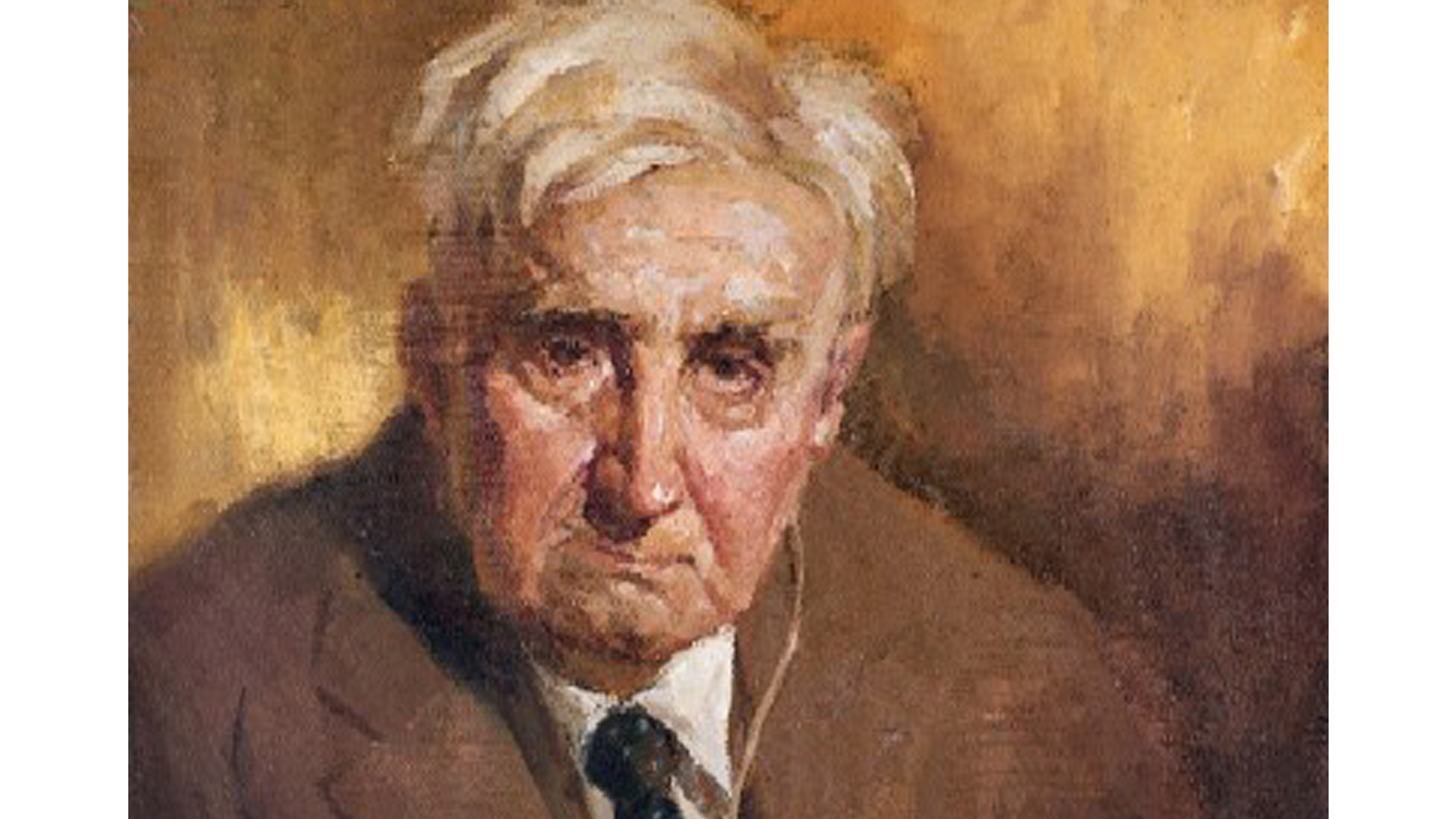
No. 26
Vaughan Williams: The Lark Ascending

“The Lark Ascending” is the title of a poem written in 1883 by novelist and poet George Meredith. It was recognized almost at once as a great poem, but even more importantly, as a quintessential English poem. It gathered together several strains of English literature at the time: a pastoral love for the English countryside, the Victorian dotage on birds and little beasties, the heightened devotional view that tended to diminish peer and commoner until they both appeared to be equals and the shared celebration of other highlights of English literature whether Shakespeare’s “Hark, hark, the Lark” or Shelly’s “To A Skylark”.
We can only assume that at some point since its publication the young composer and devotee of English folksong, Ralph Vaughan Williams read the poem. There is some debate about how long the writing of music for “The Lark Ascending” took. The composer seems to have announced his intention of setting the poem long before a note reached a notebook. His wife recalls Vaughan Williams telling her that he began to write the piece in 1914 as he watched English troops embarking for the western front. It seems that his memory was somewhat faulty. He was in Margate where no troops were embarking for anywhere, but the harbor was filled with British naval vessels. We know he was there, writing in his notebook as he stared out at the war ships, because a lad saw him there, and reported him as a German spy. He was duly hauled in and was asked to show the constable his “coded messages”. It was the opening and a theme to the work we know as “The Lark Ascending.”
Just a series of musical sketches in a notebook “The Lark Ascending” would remain as the war raged on. Vaughan Williams himself became an ambulance driver on the western front. At the front, he showed his sketches to George Butterworth who encouraged his friend to complete the work soon. Butterworth was never to hear the completed work. He died in the battle of the Somme in 1916. Butterworth left all his musical manuscripts to Vaughan Williams. Vaughan Williams completed “The Lark Ascending” in 1920. In the years following the war, the tone poem became a remarkable elegy on its own, even eclipsing the poem. When Vaughan Williams chose lines from Meredith’s poem to accompany the score, he chose just 10 lines out of the original poem’s 122. But the ten lines portray the lark as a sacrificial bird, whose song is a Eucharistic wine, blessing the world the singing bird leaves behind.
He rises and begins to round,
He drops the silver chain of sound,
Of many links without a break,
In chirrup, whistle, slur and shake.
For singing till his heaven fills,
'Tis love of earth that he instils,
And ever winging up and up,
Our valley is his golden cup
And he the wine which overflows
to lift us with him as he goes.
Till lost on his aerial rings
In light, and then the fancy sings.
Top 40 Countdown
A few years ago the listeners to WNED Classical told us what they thought a TOP 40 list of Classical pieces should be. Six hundred and twenty-two different pieces were put forward, and over nine hundred listeners participated. The result, The WNED Classical Top 40, was both startling and comforting. There were a number of surprises, Stravinsky and Copland made the list; Mendelssohn and Schumann did not! It was comforting to know that the two most popular composers were Beethoven and J.S. Bach. The biggest surprise of all was the piece that crowned the list as No. 1.